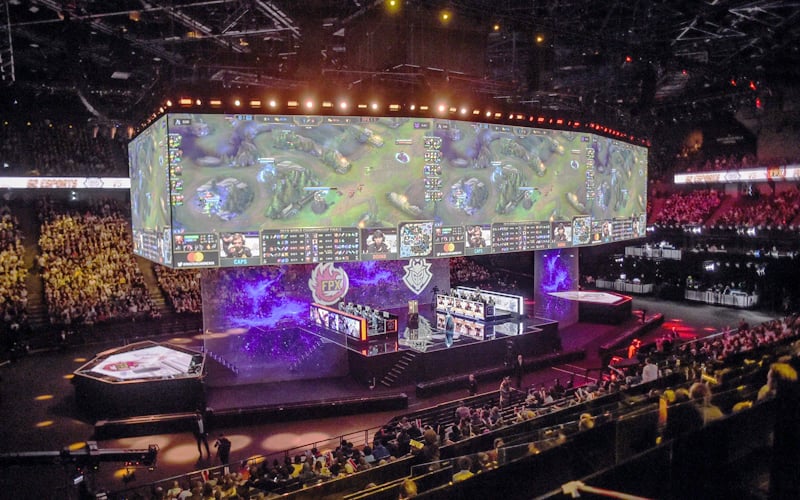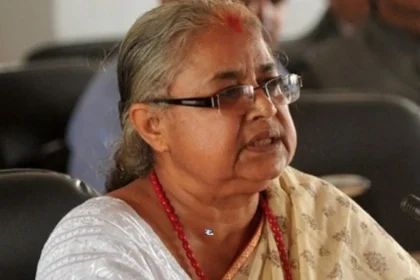South Korea is a global leader in the gaming world, particularly in the realm of esports and streaming. Known for its competitive spirit, advanced infrastructure, and thriving gaming culture, South Korea has shaped the international landscape of professional gaming. With new talent emerging, innovative streaming platforms, and an ever-growing community of fans, here’s a closer look at the gaming phenomenon that has taken South Korea and the world by storm.
The Rise of Esports: South Korea’s Competitive Edge
Esports in South Korea is more than just a hobby; it’s a mainstream profession and a national passion. Since the early 2000s, South Korea has produced some of the world’s most formidable esports players, especially in games like StarCraft, League of Legends, and Overwatch. The country boasts esports teams and players who are celebrated as national icons, often participating in internationally broadcast tournaments and drawing large audiences.
Government and Corporate Support
The South Korean government recognized esports as an official sport early on, fostering a supportive environment through initiatives and investments. The Ministry of Culture, Sports, and Tourism supports various esports programs, and private corporations like Samsung, SK Telecom, and KT Corporation sponsor major teams and tournaments. This support has established South Korea as a top destination for esports events, with professional leagues and globally acclaimed tournaments, including the League of Legends World Championship and the Overwatch World Cup.
Training and Professionalization
Professional esports players in South Korea undergo rigorous training and practice schedules, often competing in dedicated gaming houses where teams live and practice together. Top players enjoy substantial salaries, sponsorships, and endorsement deals, while the industry provides opportunities for analysts, coaches, and commentators, showcasing esports as a legitimate career path for young Koreans.
Streaming Culture: Building a Global Fanbase
Streaming has become a central part of South Korea’s gaming culture, with platforms like AfreecaTV, Naver, and Twitch enabling players to reach vast audiences. Gaming personalities, also known as BJs (broadcast jockeys) in South Korea, have garnered millions of followers through live streaming, where they showcase gameplay, interact with fans, and share personal insights.
AfreecaTV and the Power of Engagement
AfreecaTV, a homegrown streaming platform, has been instrumental in popularizing gaming streams in South Korea. Unlike other platforms, AfreecaTV allows viewers to directly support streamers through donations, known as “balloons,” which can be converted into real money. This system has given rise to a unique culture of community-driven content, where fans feel a closer connection to streamers, supporting them financially and engaging in live discussions.
Twitch and International Appeal
Many South Korean streamers have expanded to Twitch, reaching a global audience. On Twitch, top players and entertainers broadcast gameplay, offer tutorials, and host viewer competitions, drawing fans worldwide who are captivated by South Korea’s competitive gaming skills. International platforms like Twitch have helped South Korean players build an international fanbase, bringing South Korean gaming culture to a broader audience.
Mobile Gaming: Dominating the South Korean Market
Mobile gaming has become a massive sector in South Korea, driven by high smartphone penetration and fast internet speeds. With titles like PUBG Mobile, Lineage M, and FIFA Mobile, South Korean gamers are spending more time than ever on mobile devices, accessing high-quality games on the go.
Casual and Competitive Mobile Games
South Korean players enjoy both casual and competitive mobile games. The popularity of PUBG Mobile and FIFA Mobile shows the demand for multiplayer experiences on mobile, and competitive mobile gaming events are now common, with some games even having dedicated esports leagues. Casual puzzle and role-playing games also draw millions of players, with titles like Cookie Run and Summoners War enjoying long-lasting popularity.
The Influence of In-Game Purchases
The free-to-play model with in-game purchases has been especially successful in South Korea, where players willingly spend on upgrades, cosmetics, and limited-time offers. This model has been embraced by both major companies and indie developers, making mobile gaming a lucrative market that continues to grow.
Next-Gen Gamers: The Future of South Korean Gaming
As gaming evolves, a new generation of South Korean gamers is emerging, bringing fresh perspectives, diverse gameplay styles, and innovative content. These young players are exploring different genres and pushing the boundaries of what gaming can be.
Rising Stars and Young Talent
Younger players are joining established games like League of Legends and Valorant, bringing impressive skills and adapting to the fast-paced gaming environment. Many next-gen players are also expanding into new game genres, such as simulation, VR, and indie games, showing an openness to exploring diverse gaming experiences.
Indie Game Development
South Korea’s indie gaming scene is blossoming, with young developers creating unique and experimental games that differ from traditional esports titles. Indie titles such as Little Witch in the Woods and The Coma have gained popularity, showing that South Korean gamers and developers are willing to embrace new ideas and artistic expression.
Social Impact and Gaming Addiction: Addressing the Challenges
While gaming is a significant part of South Korean culture, it has also raised concerns about gaming addiction, particularly among young people. Recognizing this, the South Korean government has implemented measures to address addiction and ensure responsible gaming.
The Shutdown Law and Game Curfews
In response to concerns about gaming addiction, the government implemented the Shutdown Law, also known as the “Cinderella Law,” which prohibits children under 16 from playing online games between midnight and 6 a.m. Though controversial, this law highlights efforts to promote healthy gaming habits and balance in the lives of young gamers.
Educational and Rehabilitation Programs
There are also educational initiatives and rehabilitation programs designed to help players manage their gaming habits and avoid excessive play. These programs focus on promoting balanced lifestyles and include counseling, workshops, and even dedicated rehab centers. South Korea’s efforts in this area show a commitment to ensuring that gaming remains a healthy, positive activity for all ages.
The Future of Gaming in South Korea: Expansion and Innovation
South Korea’s gaming industry shows no signs of slowing down, with continuous growth in esports, streaming, and mobile gaming. As technology advances, new possibilities in VR, AR, and cloud gaming are expected to reshape the industry, offering more immersive experiences and expanding access to games.
VR and Cloud Gaming
With the emergence of VR and cloud gaming, South Korea is poised to lead in adopting these new technologies. Cloud gaming, in particular, will allow players to access high-quality games on any device without the need for high-end hardware, which could further democratize gaming in South Korea and beyond.
Global Collaboration and Export
South Korean gaming companies are increasingly looking to expand internationally through partnerships and game exports. Major publishers like Nexon, NCSoft, and Netmarble are investing in overseas markets and collaborating with global companies, ensuring that South Korea’s influence in gaming continues to grow on the world stage.
Conclusion: A Gaming Powerhouse
South Korea’s contributions to gaming—from pioneering esports to creating a thriving streaming culture—have made it a global powerhouse. With strong government support, passionate players, and an innovative next generation of gamers, South Korea continues to shape the world of gaming, influencing both regional and international trends. As the industry evolves, South Korea’s gaming scene is set to remain at the forefront, inspiring players and developers around the world.
Also learn about The Global Rise of K-Pop: How Korean Music is Captivating the World.










